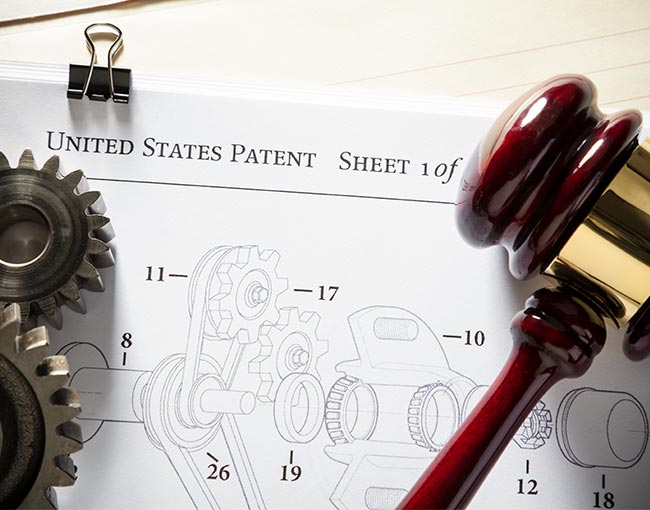Home > Insights > Publications > EA Sports won’t be beaten at its own game – Escaping potential liability through successful § 101 motion to dismiss

It has been a long-standing business practice in the video game industry to update sports video game parameters to reflect real-world developments. Who would want to play NBA Live 95 if it didn’t incorporate Michael Jordan’s ground-breaking return to the NBA? And who would want to play FIFA if its graphics didn’t change as quickly as David Beckham’s appearance? Thus, being the first to adapt to these changes has always provided a large competitive advantage in the industry.
In the past, Electronic Arts Inc. (more commonly known by its tagline “EA Sports…it’s in the game) has stayed at the forefront of the industry by releasing new versions of its professional sports video games each year. However, in the fast-paced world we now live in, things change far more frequently than just once a year. For instance, playing the championship game in NBA Live 2016 would not be too accurate if did not reflect Anderson Varejao’s mid-season trade from the Cleveland Cavaliers to the Golden State Warriors.
Therefore, in order to keep up with the fast-paced and ever-changing environment, White Knuckle Gaming, LLC designed and received a patent (U.S. Patent No. 8,540,575) for a process that allows a gaming company to update the software parameters of sports video games instantaneously to reflect recent real-life occurrences. A diagram apparently designed to help describe the patented subject matter is shown at right.
Through the patented process, the parameters are updated by the gaming company on a regular basis and are incorporated into the video game’s software via a network. To protect its patented subject matter, White Knuckle Gaming sued Electronic Arts on November 25, 2015, for manufacturing and selling products that utilized methods covered by the ‘575 patent, including but not limited to, NBA Live 14, NBA Live 15, and NBA Live 16.
According to White Knuckle Gaming, the patent was infringed by Electronic Arts’ “Synergy Sports Technology” and “Live Seasons” technology, which allows computer servers to ensure that “what is seen in-game is an accurate representation of how these players act in real life.” In response, Electronic Arts requested that the ‘575 patent be held invalid as an “abstract idea” pursuant to 35 U.S.C. § 101. White Knuckle responded by arguing that the patent is not aimed at an abstract idea, but rather “updates to the machine-implemented video games [that] change the performance of the machine-implemented video game itself and improve how the video game itself performs.” The court disagreed with this argument.
The Patent Act has long held that there are limitations to patentable subject matter. This was reinforced in Alice Corp. Pty. Ltd. v. CLS Bank Int’l, wherein the Supreme Court established a two-part test for distinguishing between abstract ideas and patentable subject matter. See 134 S. Ct. 2347, 2355 (2014). The court in the present case found that the first Alice factor was clearly satisfied because the claim at issue was directed to an “abstract idea.” Specifically, the court held that the claim was designed to cover the abstract idea of “updating software in sports video games” and did not explain or limit how the computer server would be programmed, or how the network would be configured. The court noted that Electronic Arts had been implementing this abstract idea for decades by releasing a new version of the game each year; therefore, all White Knuckle had done was apply this abstract idea to the technology currently available.
Once the first Alice factor was satisfied, the court determined whether the additional elements of the claim — beyond the abstract idea — transformed the nature of the claim into a patent eligible application. However, the court quickly noted that “an abstract idea does not become patent eligible under Section 101 by merely requiring generic computer implementation.” Therefore, as the only improvement to the abstract idea noted in the patent was that the updates would occur more frequently over the Internet — which is accomplished using a network in a normal manner — the court found that the ‘575 patent failed the second Alice factor as well.
Consequently, the court found that the patent covered patent-ineligible material and dismissed White Knuckle Gaming’s complaint. This decision is merely one in a long line of recent cases restricting the scope of patent protection in the computer software market. However, it does clarify the simple principle that doing nothing more than adding current technology to pre-existing ideas does not create patentable subject matter.
Justin Mulligan is an associate in Thompson Coburn’s Intellectual Property group. You can reach him at (314) 552-6227 or jmulligan@thompsoncoburn.com.
